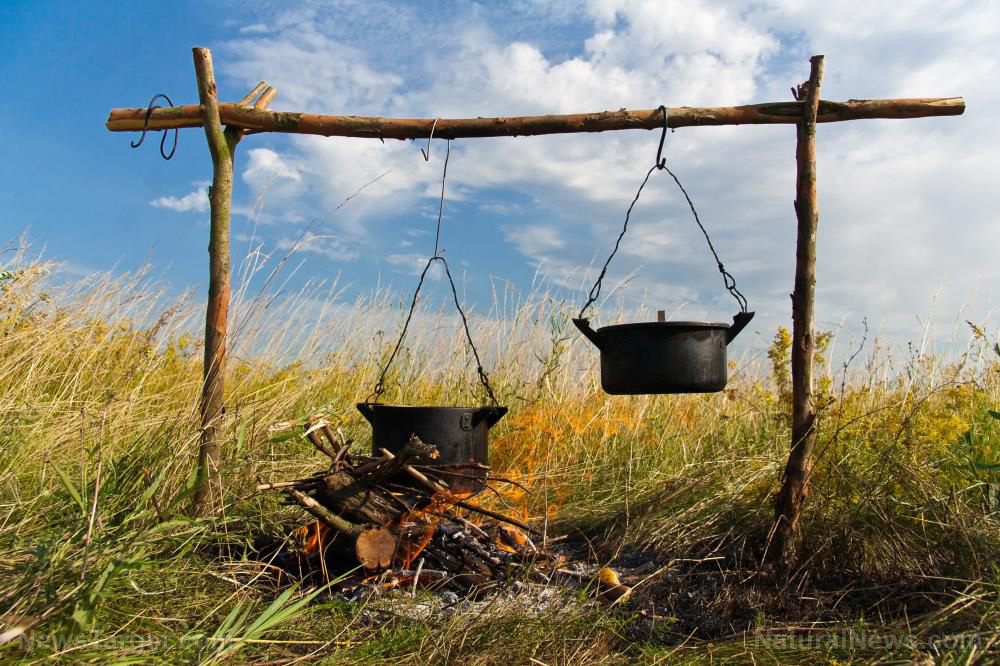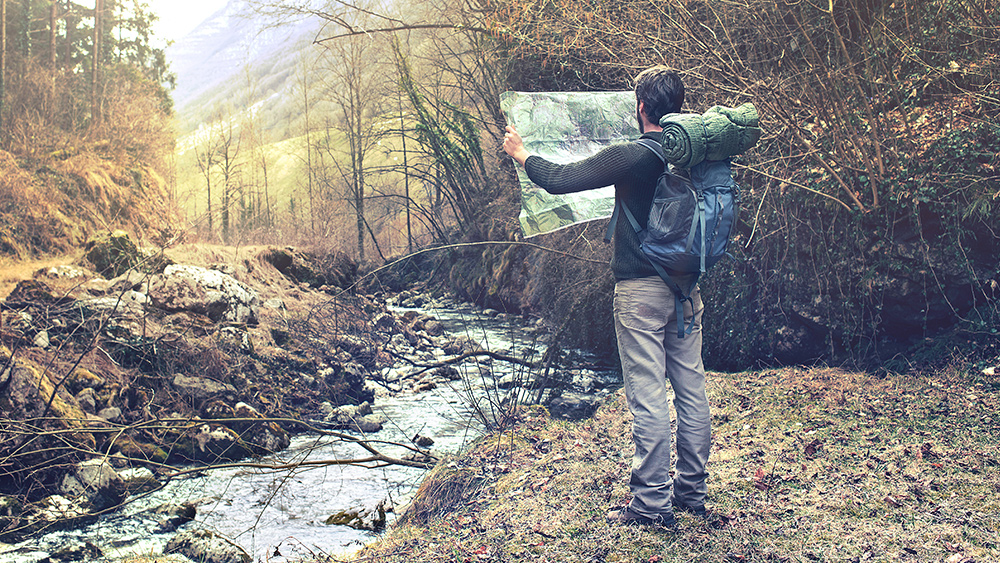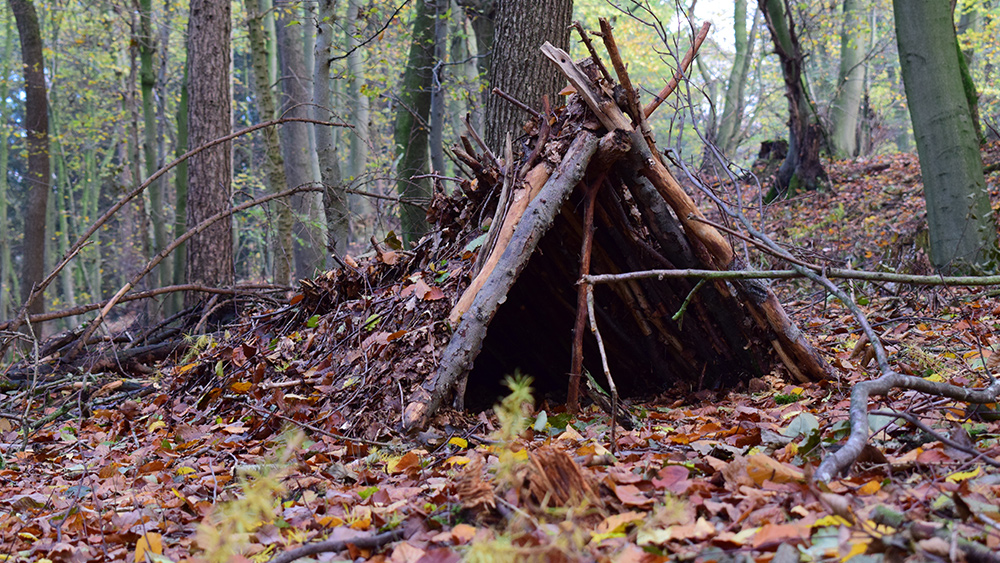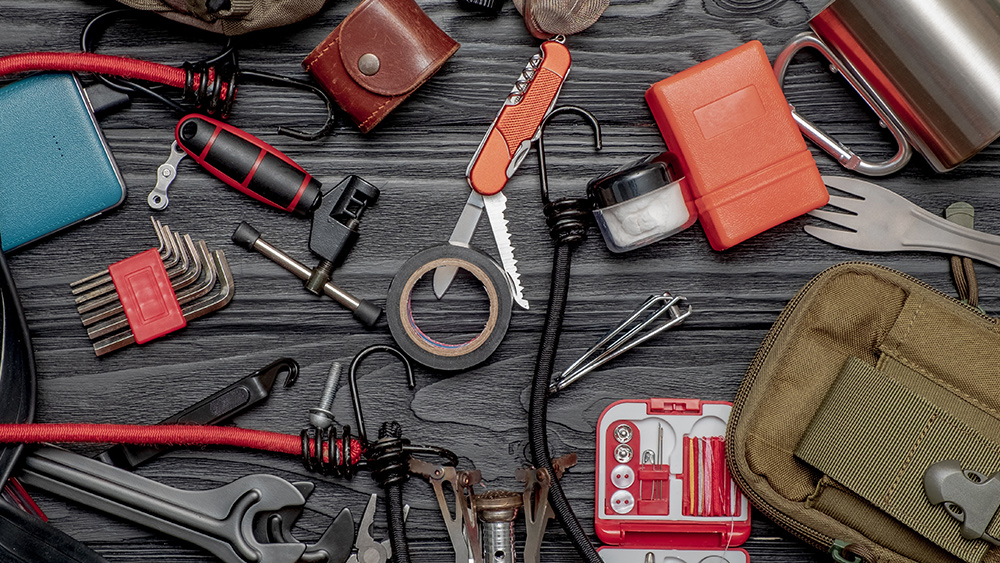Preparing for disaster: How to set up backup electric power
By Zoey Sky // Feb 09, 2018
TAGS: bug out, Collapse, disaster, generator, Homestead, homesteading, off grid, portable generator, power, preparedness, prepper, prepping, SHTF, solar panels, solar power generator, survival, survival skills, whole-house generator

Imagine this scenario: you're relaxing at home with your family, then the power suddenly goes out. Will everyone panic because you don't have a backup source of electricity, or will you be calm and collected as you head to your portable generator? (h/t to DoomsdayMoose.com)
If you have backup electrical power, you won't have to worry if the food in your fridge is going to spoil or if you're going to be too warm/cold without an HVAC system. Communication also won't be a problem because you'll still have a way of charging your phones.
Don't know where to start when it comes to emergency backup power? Here are some options to consider:
- Fixed solar panels - If you're looking for a "complete off-grid power system" for home use, consider fixed solar panels, especially if your location receives plenty of sunlight throughout the year. These solar panels will be installed on the roof, and the energy they absorb from the sun will produce electricity. Any surplus electricity will be stored in batteries so you can keep things running even at night. Use a power inverter to "step up" the battery power for your lights and household appliances. This system is also fixed in place like a whole-house generator. Fixed solar panels are suitable for when you're going to stay in one place during a disaster. However, they're not the best choice if you have to stay mobile.
- Portable power generators - Portable power generators aren't always under powered. Some models are small enough to lug around, and there are portable options that may require forklifts to be placed onto trucks. But if you need one for your house, a portable power generator can be mounted to a frame with inflated rubber tires. Options include gasoline-, diesel-, natural gas-, and propane-powered models. These portable power generators can be used to keep the lights and fridge on, but they may not have enough power to run air conditioning.
- Portable solar power generators - These are similar to portable power generators, but they are powered by solar energy. These look like wheeled suitcases, and they come with an inverter, battery, and solar panel. They also have receptacles to plug devices into that "run on household current." Systems with spare batteries are also available. These generators can be plugged into a wall receptacle at home, so the system is fully charged for any emergencies. They are also perfect for when you're going camping or for other outdoor recreational activities. (Related: Learn how to build an off-grid generating system to produce electricity in any situation.)
- Whole-house generator - While this isn't the most affordable option, it's the most powerful one. This generator can even be powerful enough to keep the electricity on for the whole house. Smaller generators can be connected to several circuits to power some lights and outlets, plus your fridge and HVAC system. Either liquid or gas fuels may power a whole-house generator. In the event of a flood, hurricane, or tornado, natural gas supplies usually remain intact. If you already use propane, consider getting a propane-powered generator. If you keep diesel tanks on a farm, go for a diesel-powered model.
If you plan, you'll be fine even though an emergency situation cuts off the power in your neighborhood.
Tips for preparing for a power outage
Here are other tips to help you prepare your family for a power failure:
- Set up a storage space and make sure it's accessible even in the dark
- Prepare supplies (food, water, etc.) for at least two weeks
- Keep a flashlight or lantern by every bedside
You can read more articles about other backup emergency power options and how to prepare for disasters at Preparedness.news.
Sources include:
Related Topics
bug out Collapse disaster generator Homestead homesteading off grid portable generator power preparedness prepper prepping SHTF solar panels solar power generator survival survival skills whole-house generatorLatest News
04/26/2023 / By Ethan Huff
04/26/2023 / By JD Heyes
04/26/2023 / By JD Heyes
04/26/2023 / By Ethan Huff
04/26/2023 / By Ethan Huff
Related News
04/25/2023 / By Zoey Sky
04/24/2023 / By Zoey Sky
04/21/2023 / By Zoey Sky
04/19/2023 / By Zoey Sky
04/17/2023 / By Zoey Sky
04/11/2023 / By Zoey Sky
04/11/2023 / By Olivia Cook
Take Action:
Support NewsTarget by linking to this article from your website.
Permalink to this article:
Copy
Embed article link:
Copy
Reprinting this article:
Non-commercial use is permitted with credit to NewsTarget.com (including a clickable link).
Please contact us for more information.
Please contact us for more information.





















